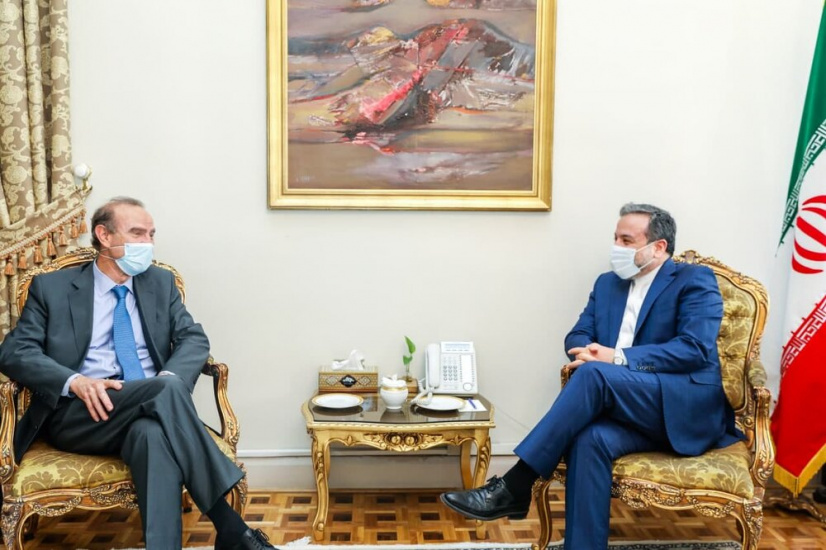U.S., UK launch campaign of bullying against Iran

In doing so, they are unwittingly playing into the hands of an Israeli scheme designed to torpedo the very same nuclear deal Washington and the Europeans are allegedly trying to revive.
The controversy over the recent attack on the Israeli-operated ship Mercer Street continues unabated, with the U.S. and the UK taking the issue to the UN Security Council, though they failed to create a consensus against Iran in the UN body.
The Israeli ship came under attack off the coast of Oman on July 29 while traveling from Dar es Salaam in Tanzania to the United Arab Emirates port of Fujairah. The oil tanker, managed by Israeli shipping magnate Eyal Ofer’s Zodiac Maritime, was reportedly attacked by suicide drones. Zodiac Maritime said two crewmen, a British and Romanian national, died in the attack.
This attack, blamed by Tel Aviv, London, and Washington on Iran, marked the beginning of a coordinated diplomatic campaign against Iran at a time when the nuclear talks over the 2015 Iran nuclear deal reached a deadlock after six rounds of painstaking talks in Vienna.
The last round of Vienna talks was concluded more than a month ago with the differences over how to revive the Joint Comprehensive Plan of Action (JCPOA) still not bridged. The U.S. refused to lift all the sanctions imposed by the Trump administration as well as give guarantees that it will not withdraw from the JCPOA again.
The sixth round was held while Iran was undergoing a transition of power due to the June 18 presidential election in which Ayatollah Ebrahim Raisi won by a landslide.
Sensing a change of calculations in Tehran, the U.S., along with its European allies, embarked on a diplomatic campaign to intimidate Iran into returning to the Vienna talks without any new demands. The main concern of the U.S. was that the new Iranian president’s negotiating team would come back to Vienna with new spirit and demands, something that amounts to the abrogation of the “progress” made in the last six rounds. This concern was not gratuitous; The Tehran Times reported in early July that Iran had considered, among other options, rejecting the outcome of the Vienna talks under Hassan Rouhani. At that time, a source familiar with the matter told the Tehran Times that Iran may seek to reject the outcome and lay out a new agenda for the talks with the West with the purpose of solving the outstanding issues in a new format and spirit.
In an apparent bid to influence Iran’s calculations, the U.S. sought to ramp up diplomatic pressure on Iran ever since the end of the sixth round. They threatened to withdraw from the talks, openly opposed lifting all the sanctions, and even prepared new oil sanctions on Iran.
Then there was the attack on Mercer Street, which was seen by the U.S. and its allies as a gift to further squeeze Iran. While the kerfuffle over this attack is still ongoing, the UK and its allies cooked up stories about the hijacking of several commercial ships off the coast of the United Arab Emirates in the Gulf of Oman. Once again, they accused Iran of playing a role.
Iran fully understood the ulterior motives behind the drama. Iranian officials warned the West against engaging in dirty games of propaganda to extract concessions. Commenting on the alleged hijacking attempt in the Gulf of Oman, the Iranian embassy in the UK said on Twitter, “Misleading the public all around the world for diplomatic gain in New York is not fair game.”
But this unfair game may backfire. The U.S. and the UK have enlisted the help of Israel in their campaign of pressure against Iran, a move that is likely to have unintended consequences for London and Washington. Because Israel may be on the same page with the U.S. and the UK in terms of turning up the heat on Iran, certainly Tel Aviv seems to be seeking different goals toward Iran than those the UK and the U.S.
Israel’s Ambassador to the US and UN Gilad Erdan has shed his inhibition and unveiled part of these goals. He said that Israel would ultimately like to see the Islamic Republic of Iran overthrown. “In the end, we would ultimately like to see [the government] overthrown and [for there to be] regime change and Iran,” Erdan told Army Radio on Thursday, when asked about Israel’s strategy vis-à-vis the Islamic Republic, according to the Times of Israel.
Regardless of what Israel pursues vis-à-vis Iran, the current approach of London and Washington is unlikely to bear results as Iran has made it clear that it will not be intimidated into giving up its legitimate rights.
Source: Tehran Times

